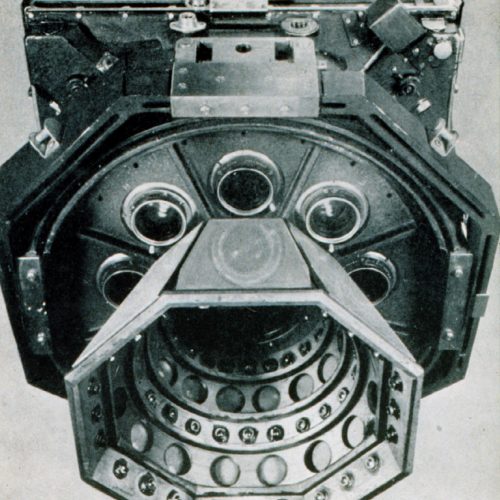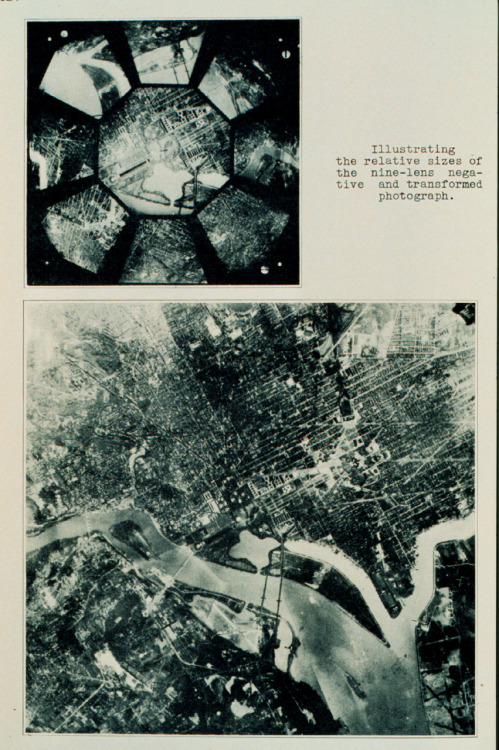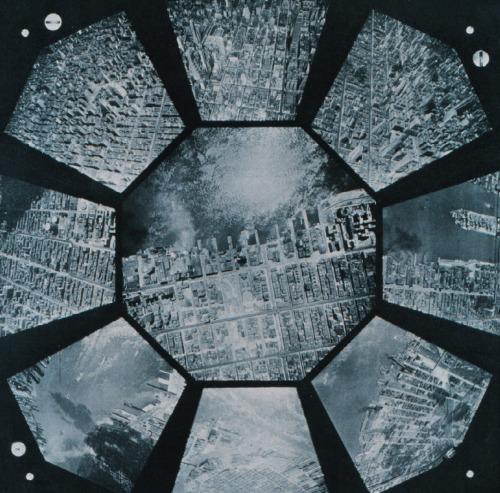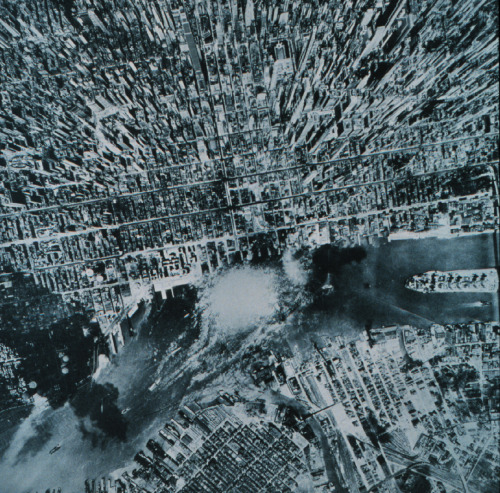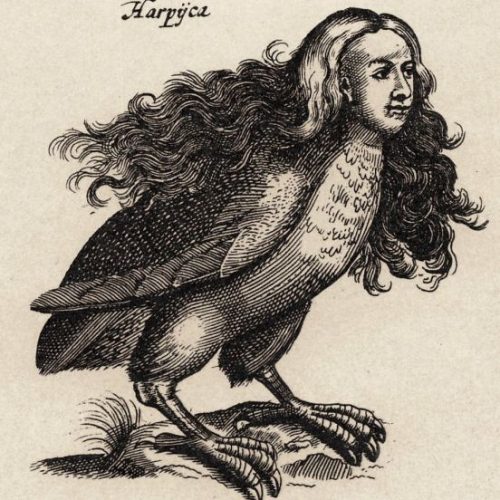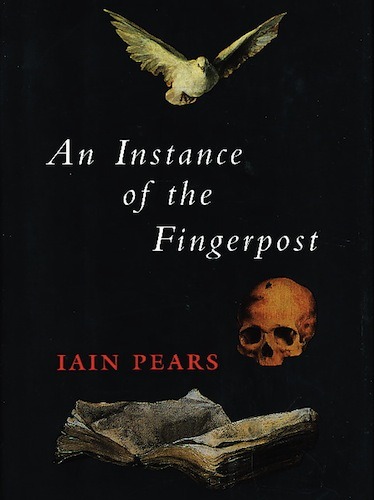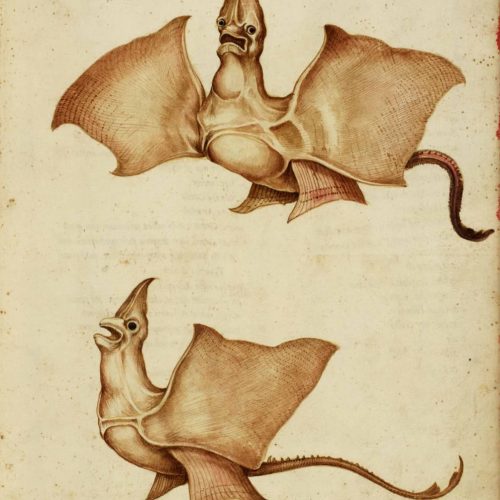Au Revoir Borealis – “Bella Ballerina”
Dark Enough For Stars
A wispy, melancholy instrumental from this shoegaze-y 2008 album. Would work well as background music for a day-in-the-life montage of a forlorn and lonely grocery bagger. (site)
Many mortal men came to see fair Psyche, the glory of her age, they did admire her, commend, desire her for her divine beauty, and gaze upon her; but as on a picture; none would marry her, quod indotata [because she had no dowry]; fair Psyche had no money. So they do by learning.
Extracts from Olaf Stapledon’s “Last and First Men”
 In the Far West, the United States of America openly claimed to be custodians of the whole planet. Universally feared and envied, universally respected for their enterprise, yet for their complacency very widely despised, the Americans were rapidly changing the whole character of man’s existence. By this time every human being throughout the planet made use of American products, and there was no region where American capital did not support local labour. Moreover the American press, gramophone, radio, cinematograph and televisor ceaselessly drenched the planet with American thought. Year by year the aether reverberated with echoes of New York’s pleasures and the religious fervours of the Middle West. What wonder, then, that America, even while she was despised, irresistibly moulded the whole human race. This, perhaps, would not have mattered, had America been able to give of her very rare best. But inevitably only her worst could be propagated. Only the most vulgar traits of that potentially great people could get through into the minds of foreigners by means of these crude instruments. And so, by the floods of poison issuing from this people’s baser members, the whole world, and with it the nobler parts of America herself, were irrevocably corrupted.
In the Far West, the United States of America openly claimed to be custodians of the whole planet. Universally feared and envied, universally respected for their enterprise, yet for their complacency very widely despised, the Americans were rapidly changing the whole character of man’s existence. By this time every human being throughout the planet made use of American products, and there was no region where American capital did not support local labour. Moreover the American press, gramophone, radio, cinematograph and televisor ceaselessly drenched the planet with American thought. Year by year the aether reverberated with echoes of New York’s pleasures and the religious fervours of the Middle West. What wonder, then, that America, even while she was despised, irresistibly moulded the whole human race. This, perhaps, would not have mattered, had America been able to give of her very rare best. But inevitably only her worst could be propagated. Only the most vulgar traits of that potentially great people could get through into the minds of foreigners by means of these crude instruments. And so, by the floods of poison issuing from this people’s baser members, the whole world, and with it the nobler parts of America herself, were irrevocably corrupted.For the best of America was too weak to withstand the worst. Americans had indeed contributed amply to human thought. They had helped to emancipate philosophy from ancient fetters. They had served science by lavish and rigorous research. In astronomy, favoured by their costly instruments and clear atmosphere, they had done much to reveal the dispositions of the stars and galaxies. In literature, though often they behaved as barbarians, they had also conceived new modes of expression, and moods of thought not easily appreciated in Europe. They had also created a new and brilliant architecture. And their genius for organization worked upon a scale that was scarcely conceivable, let alone practicable, to other peoples. In fact their best minds faced old problems of theory and of valuation with a fresh innocence and courage, so that fogs of superstition were cleared away wherever these choice Americans were present. But these best were after all a minority in a huge wilderness of opinionated self-deceivers, in whom, surprisingly, an outworn religious dogma was championed with the intolerant optimism of youth. For this was essentially a race of bright, but arrested, adolescents. Something lacked which should have enabled them to grow up. One who looks back across the aeons to this remote people can see their fate already woven of their circumstance and their disposition, and can appreciate the grim jest that these, who seemed to themselves gifted to rejuvenate the planet, should have plunged it, inevitably, through spiritual desolation into senility and age-long night.
What might not this energy have achieved, had it been more critically controlled, had it been forced to attend to life’s more forbidding aspects! Direct tragic experience might perhaps have opened the hearts of this people. Intercourse with a more mature culture might have refined their intelligence. But the very success which had intoxicated them rendered them also too complacent to learn from less prosperous competitors.
Yet there was a moment when this insularity promised to wane. So long as England was a serious economic rival, America inevitably regarded her with suspicion. But when England was seen to be definitely in economic decline, yet culturally still at her zenith, America conceived a more generous interest in the last and severest phase of English thought. Eminent Americans themselves began to whisper that perhaps their unrivalled prosperity was not after all good evidence either of their own spiritual greatness or of the moral rectitude of the universe. A minute but persistent school of writers began to affirm that America lacked self-criticism, was incapable of seeing the joke against herself, was in fact wholly devoid of that detachment and resignation which was the finest, though of course the rarest, mood of latter-day England. This movement might well have infused throughout the American people that which was needed to temper their barbarian egotism, and open their ears once more to the silence beyond man’s strident sphere. Once more, for only latterly had they been seriously deafened by the din of their own material success. And indeed, scattered over the continent throughout this whole period, many shrinking islands of true culture contrived to keep their heads above the rising tide of vulgarity and superstition.
Thus it was that America sank further and further into Americanism. Vast wealth and industry, and also brilliant invention, were concentrated upon puerile ends. In particular the whole of American life was organized around the cult of the powerful individual, that phantom ideal which Europe herself had only begun to outgrow in her last phase. Those Americans who wholly failed to realize this ideal, who remained at the bottom of the social ladder, either consoled themselves with hopes for the future, or stole symbolical satisfaction by identifying themselves with some popular star, or gloated upon their American citizenship, and applauded the arrogant foreign policy of their government.
Meanwhile, Bramanti went on: “Sublime Hierogam of the Chemical Wedding, Sublime Rodostauric Psychopomp, Sublime Referendarium of the Most Arcane Arcana, Sublime Steganograph of the Hieroglyphic Monad, Sublime Astral Connector Utriusque Cosmi, Sublime Keeper of the Tomb of Rosencreutz… Imponderable Archon of the Currents, Imponderable Archon of the Hollow Earth, Imponderable Archon of the Mystic Pole, Imponderable Archon of the Labyrinths, Imponderable Archon of the Pendulum of Pendula…” Bramanti paused, and it seemed to me that he uttered the last formula with reluctance: “And the Imponderable Archon of Imponderable Archons, the Servant of Servants, Most Humble Secretary of the Egyptian Oedipus, Lowest Messenger of the Masters of the World and Porter of Agarttha, Last Thurifer of the Pendulum, Claude-Louis, Comte de Saint-Germain, Prince Rackoczi, Comte de Saint-Martin, and Marchese di Aglie, Monsieur de Surmont, Mr. Welldone, Marchese di Monferrato, of Aymar, and of Belmar, Count Sol-tikoff, Knight Schoening, Count of Tzarogy!”
An Instance of the Fingerpost (Iain Pears, 1997)
The full-immersion historical novel isn’t an easy one to get right. It’s easy to get bogged down in irrelevant contemporary details, info-dumps in the form of history lessons, or archaic speech. Or it can be a failure of overarching style, as novels written in the 18th and 19th centuries in particular (popular periods for period books) are for the most part extremely well-structured, a feat not every novelist can achieve. An Instance of the Fingerpost manages to avoid most of these pitfalls, presenting a vibrant and highly compelling 17th century England, but outside the traditional bustle and filth of London. The structure of the book is also compelling, and as soon as you detect it, the depth and your own interest increases.
If anyone can achieve power, then all will try and government becomes a mere battle in which principle is sacrificed for interest. The lowest will impose themselves, for the best will shun the gutter.


